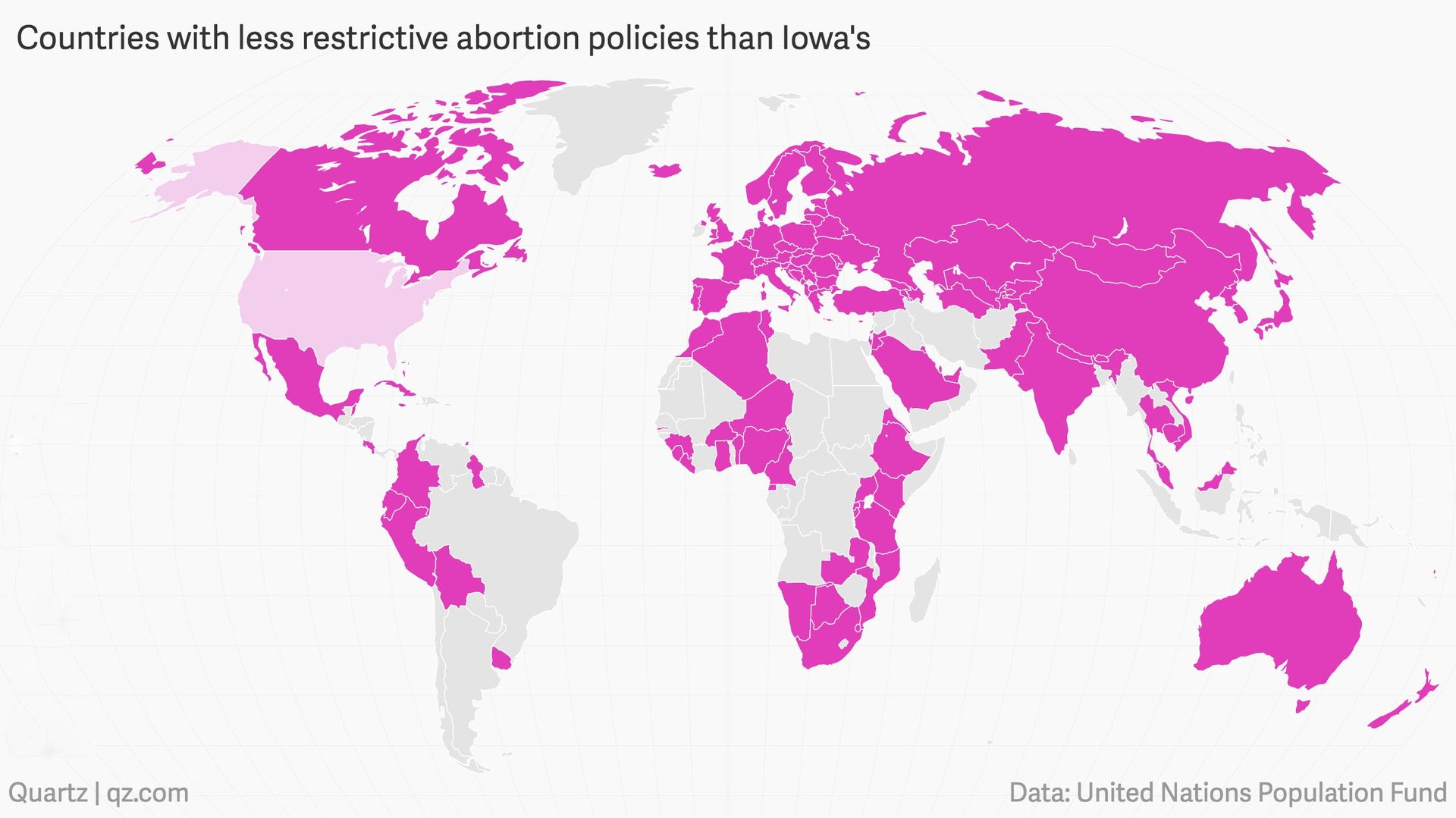126 countries where women face fewer obstacles to abortion than in Iowa
After Iowa governor Kim Reynolds signed the state’s new limitations on abortion into law on May 4, it is now illegal to abort in the state once a fetus’s heartbeat is detected. Heartbeats can be detected as early as six weeks into a pregnancy—sometimes before women even realize that they are pregnant.


After Iowa governor Kim Reynolds signed the state’s new limitations on abortion into law on May 4, it is now illegal to abort in the state once a fetus’s heartbeat is detected. Heartbeats can be detected as early as six weeks into a pregnancy—sometimes before women even realize that they are pregnant.
Women who become unwillingly pregnant in Iowa and do not take action before heartbeats become detectable will have to travel outside the state for an abortion, or else be forced to carry the pregnancy to term.
This law follows a series of restrictive abortion laws passed recently in US states. It is the most restrictive yet in the country, and of any country where abortion is legal. In countries that permit abortion, women typically have at least 12 weeks to seek an abortion.
The new law allows exceptions only in case of life-threatening risk for the mother, rape, incest, and grave fetal deformities “incompatible with life.” For comparison, even the notoriously restrictive Ireland and Poland allow abortion to preserve the mother’s mental health, at least in theory.

In the western world, only the Vatican and Malta have stricter laws than Iowa. Globally, 126 countries out of 196—including Saudi Arabia, and the rest of the United States—now pose fewer legal obstacles to abortion than Iowa.